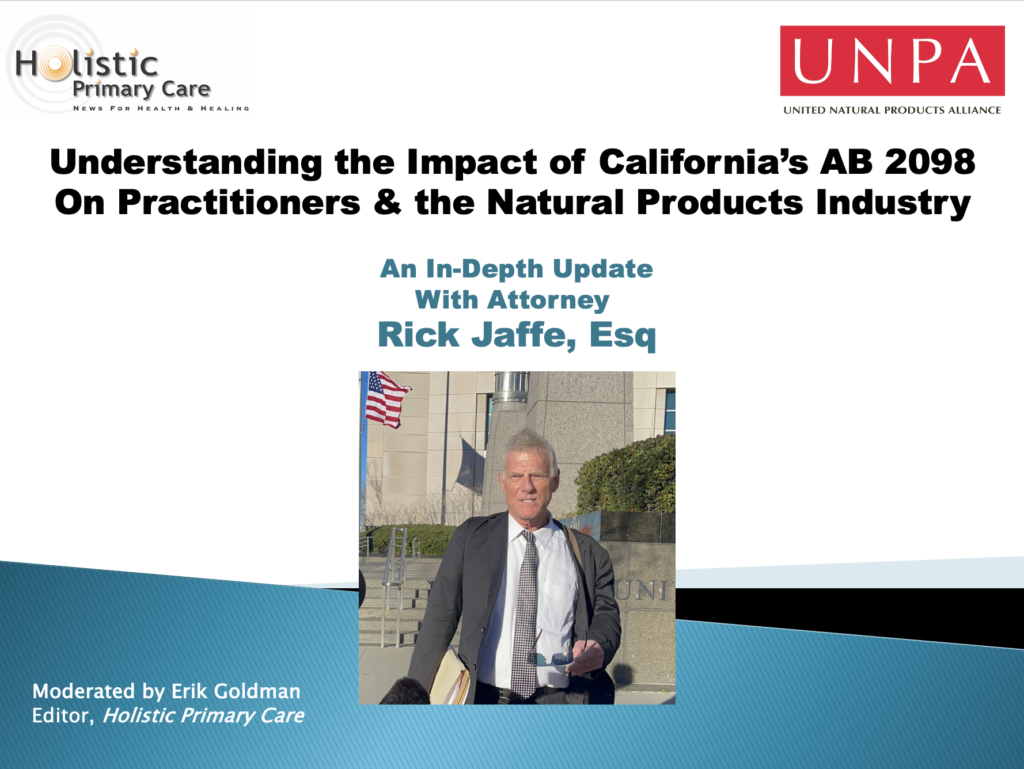
Last summer, the California legislature passed a new law (AB 2098) deputizing the state’s medical board to take disciplinary action—including revocation of licenses—against MDs and DOs who spread Covid-related “disinformation” or “misinformation.”
While clearly intended to target doctors who question or criticize federal and state vaccine policies, AB 2098 is based on a broad definition of mis- and disinformation that could be interpreted to include any modality that falls outside “scientific consensus” or current “standards of care.”
Many view AB 2098 as a gag law intended to squelch dialog about medical alternatives. Consequently, it has implications far beyond California, and far beyond Covid. The bill had unconditional support from the AMA, and other states are considering similar laws.
At the end of January, advocates of medical free speech won a major victory when US District Judge William Shubb issued a preliminary injunction blocking the California Attorney General from enforcing AB 2098.
While that’s an important win, the fight over AB 2098 is just beginning.
Join us for an in-depth live interview with Rick Jaffe, Esq, the attorney whose efforts on the landmark Hoang v. Bonta case succeeded in winning the injunction that stopped the implementation of AB 2098…at least temporarily.
We’ll cover:
• The background of AB 2098 and the forces behind it
• How the law defines “misinformation” and “disinformation”
• How many other states are considering similar bills
• The potential risks to holistic, functional, and naturopathic practitioners
• The significance of the preliminary injunction, and what happens next
• Potential impact on practitioners who recommend or sell supplements
• Implications for the natural products industry
Richard Jaffe, Esq, is a health care litigator, focusing on cutting-edge medical/legal issues. He holds a JD from Columbia Law School where he was a member of the Columbia Law Review and a Stone Scholar, and a BA with honors from the Hebrew University of Jerusalem where he received a prize for academic excellence in the History and Philosophy of Science. He is admitted to practice law in California, Texas, and New York. His main focus is on litigation, criminal and administrative investigations involving significant health care issues throughout the country. His book, Galileo’s Lawyer tells the stories of medical mavericks who faced off against the government, and gives an insider’s view on some of his high-profile and controversial medical cases.







